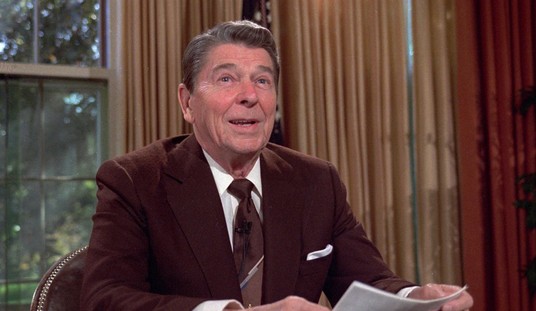If reports that Saudi Arabia had bought nuclear weapons from Pakistan represented their ultimate demarche against the rapproachment between Obama and Iran, then President Netanyahu’s proclamation that he would not be bound by the agreement was its Israeli counterpart. The UK Telegraph reports that “Benjamin Netanyahu set himself on a collision course with Israel’s Western allies on Friday after lashing out at an impending deal over Iran’s nuclear programme and warned that his country would not be bound by it”
“Israel is not obliged by this agreement and will do everything it needs to defend itself, to defend the security of its people”.
Strong words between allies. Stronger even than Merkel’s summons of the American ambassador over allegations the NSA had tapped her phone. Jeffrey Goldberg’s advice to Netanyahu is not to get in over his head on the defiance thing. Don’t take the high hand. Such advice has been offered many times before; from the debt ceiling negotiations to Ted Cruz’s filibuster. Give it up, you can’t stop the president because he runs the system you are part of; you will only make a fool of yourself by trying.
The first reason is that U.S. President Barack Obama has him boxed in. Netanyahu can’t launch a unilateral strike on Iran now that the U.S. is actively negotiating with its leaders. That would just be outre. So Netanyahu is in a time-out of sorts — and therefore semi-marginalized.
The second reason is one Netanyahu, so far at least, has refused to comprehend. His unwillingness to permanently freeze settlement growth on the West Bank, to make the sort of grand gesture toward the Palestinians that would advance the peace process, has caused even those in Washington and Europe who are sympathetic to his stance on Iran to write him off as generally immovable and irrational.
Of course, the growth of settlements has nothing to do with Iran’s nuclear ambitions. Iran is not seeking the capability to build a nuclear weapon in order to bring about a two-state solution to the Israeli-Palestinian crisis.
Netanyahu argues that these are two separate issues, and he’s correct. Except that, in the world of international diplomacy, they are inextricably linked.
Others may counter-argue that Netanyahu’s real mistake was to leave things too late; he kept quiet for too long. Like the GOP — or a woman who has foolishly agreed to come into an apartment and hears the door lock shut behind her and a hidden switch turn on a suggestive sound track and dim the lights — the time to exit politely has slipped by. So the advice to Netanyahu is understandable: play ball and hope you don’t catch the clap. Do anything, just stay stay in the system, because for its inmates there is no life outside the system; no solutions outside the institutions of the alliance, the UN, the international community.
The New York Times takes more or less the same line. “The remarks highlighted the growing gulf and heightened tensions between the United States and Israel over the nuclear talks and other issues in the Middle East.”
But they also hinted at the limited tools left for Mr. Netanyahu, who is sidelined in the negotiations over Iran’s nuclear program, which he views as an existential threat to his country and has long made his primary focus.
As Washington and its Western allies increasingly show willingness to make some concessions to engage Iran in the negotiations, Mr. Netanyahu has few options beyond serving as the hawkish scold in hopes of applying pressure on Israel’s allies. “I don’t see any magic wand he can really produce at this moment,” said Dan Gillerman, a former Israeli ambassador to the United Nations. “This is a very difficult and trying time for the Israeli prime minister.”
Although Mr. Netanyahu’s declaration on Friday that Israel is not “obliged” by any agreement made in Geneva raised anew the specter of an Israeli military strike on Tehran, experts here say such an attack is all but impossible to imagine while negotiations proceed — and without American support.
Goldberg is probably correct to conclude that there is no Beltway solution conceivable in the path which Netanyahu now threatens to tread. It must be a bluff because there is no way to express, in the notation of alliance and Washington politics, the sort of condition that Bibi’s argument implies. No solution any more than there is a way out of the dim light apartment short of diving out the window or swinging the handbag at the host.
Because what Netanyahu’s outburst — and the Saudi threat to buy nuclear weapons — implies is not a solution set within the system, but a threat to leave the system; to smash the alliance, to walk out; to do the the unthinkable within the consensus the Beltway universe.
Thus they don’t believe Netanyahu will do it. And maybe he won’t. Think of what he risks.
US allies and loyal citizens have always been at a disadvantage vis a vis America’s enemies in that they are implicitly bound to remain loyal to the system; to obey its rules in a way that foes are not. Enemies are by definition outside the system. They can propose anything, do anything. However Netanyahu can no more say “no” to POTUS than Texas can threaten to secede from the Union. We are loyal, Iran is not.
But the problem with Obama is that he’s violated the first rule of leadership: never give an order that you know cannot be obeyed. The other two rules are well known to you.
1. Never lie to the troops.
2. Never tell a man to do anything you’re not willing to do yourself.
3. Never give an order you know won’t be obeyed.
Asking the impossible creates certain difficulties. Netanyahu may knuckle under in the end, but Obama’s negotiation strategy has been singularly feckless. He has pursued an approach toward Iran inimical to the most basic interests of his allies, relying on the ties of loyalty, friendship and respect for tradition to sell the deal when he himself has not indicated loyalty to them. And the difficulty with this approach, as any man who sponges off friends eventually learns, is that when the strategy collapses, it crashes completely.
The administration’s strategy towards Iran — secretly suspending sanctions while putting the onus on Israel to make concessions — is, whatever you may think of it a very high risk proposition. It sets up a brittle situation. If the president cannot come up with a deal the region can ultimately live with; if he simply comes up with the international version of Obamacare, or the regional version of Syria; in other words if he exhibits exactly the same competence in this that he’s exhibited all his life then the system will break.
The system will break because his made-for-television solution will fail.
Goldberg will remain correct. There will be no solution set within the Beltway system. So refusing to play ball with the president should rightly be construed as a fatal step. But he may not have foreseen that the dynamics of the situation are themselves pushing the solution outside the system. And what a danger that would be. No administration should risk, for the sake of peace, a hazard greater than the one they seek to avert. That would be like trying to put out a kitchen fire with a handy can of gasoline.
The fundamental problem with Obama’s Iranian policy, which was crafted insofar as I can tell, as a direct reaction to his Syrian blunder, is that it bets the farm on a long shot. Iran will not stop in its march to the bomb because it has more to gain by it than it can ever lose to Obama. The problem for everyone, not just Bibi, is what to do when the dice come up Snake Eyes.
Did you know that you can purchase some of these books and pamphlets by Richard Fernandez and share them with you friends? They will receive a link in their email and it will automatically give them access to a Kindle reader on their smartphone, computer or even as a web-readable document.
The War of the Words for $3.99, Understanding the crisis of the early 21st century in terms of information corruption in the financial, security and political spheres
Rebranding Christianity for $3.99, or why the truth shall make you free
The Three Conjectures at Amazon Kindle for $1.99, reflections on terrorism and the nuclear age
Storming the Castle at Amazon Kindle for $3.99, why government should get small
No Way In at Amazon Kindle $8.95, print $9.99. Fiction. A flight into peril, flashbacks to underground action.
Storm Over the South China Sea $0.99, how China is restarting history in the Pacific
Tip Jar or Subscribe or Unsubscribe










Join the conversation as a VIP Member